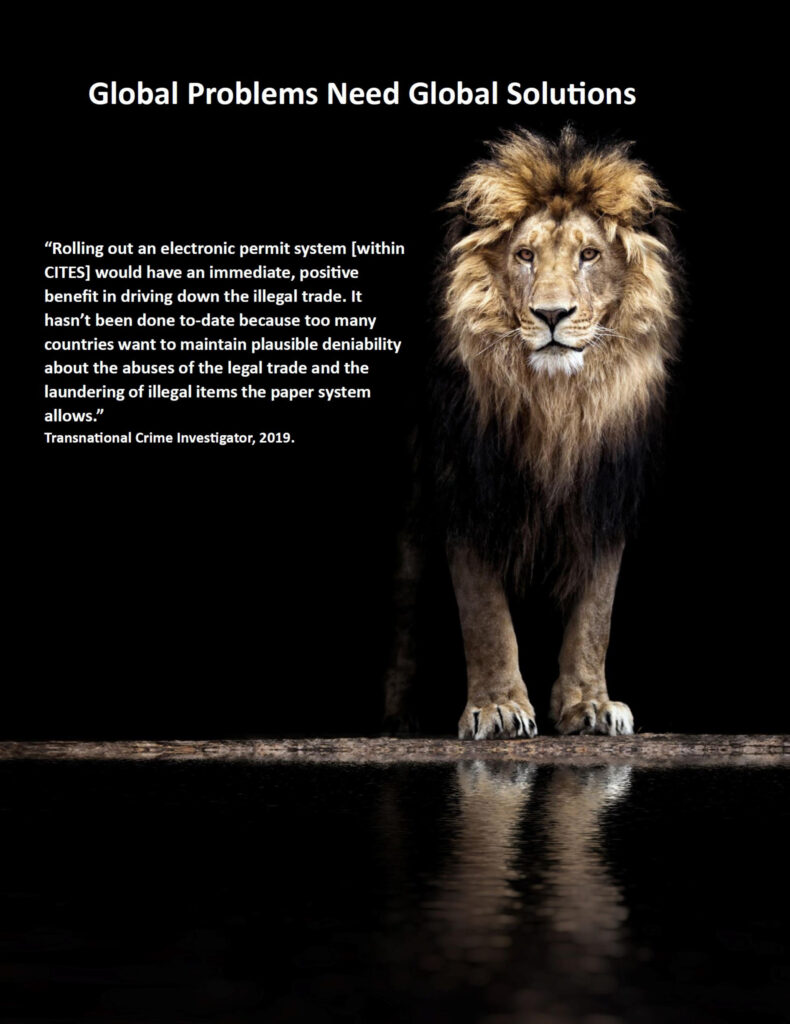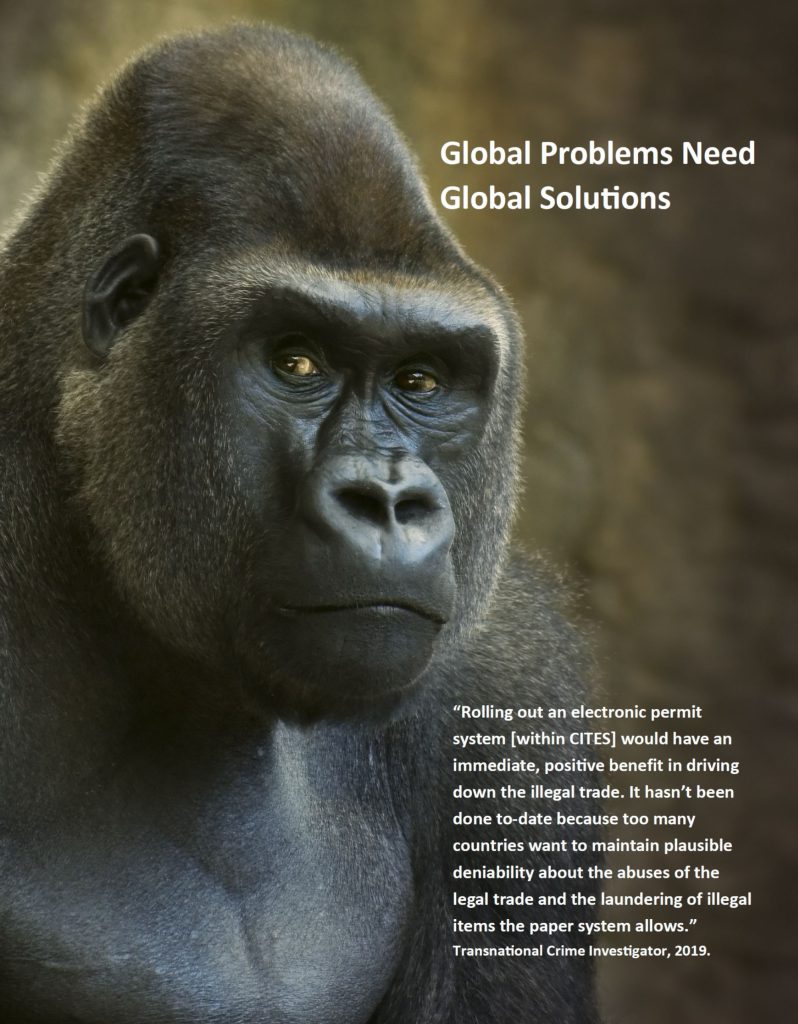“If corruption is a disease, transparency is a central part of its treatment.”
Kofi Annan
The landmark May 2019 IPBES report into the global extinction crisis confirmed that direct exploitation for trade is the most important driver of decline and extinction risk for marine species and the second most important driver for terrestrial and freshwater species.
The legal trade in endangered species is huge and all but 16 (shown in amber on the linked map) of the 184 CITES signatory parties still use the original 1970s paper-based permit system. The CITES permit system is completely stand-alone, does not integrate with customs systems and it does not have a central repository of permits that would allow real-time verification from anywhere in the world. This is enabling the equally massive illegal trade to flourish and makes prosecutions unnecessarily difficult because it is currently too hard to decouple the legal and illegal trade.
The result is that the system is not only open to corruption, but also to fraud. Permits can be easily forged, copied, altered or reused and such fraud is hard to detect given the lack of security inherent in the system. This massive loophole is used by the rampant illegal wildlife trade and it is impossible to successfully tackle the illegal trade without modernizing the CITES permit system. In a CITES news article, published during the CITES CoP19 in Panama in November 2022, the CITES Secretary General Ivonne Higuero discussed how digitization will curb illicit trade by facilitating the exchange of electronic permits and information across borders, increasing transparency and preventing the use of fraudulent permits. This can be done quickly and cost-effectively thanks to a collaboration between UNCTAD and CITES to develop a modern electronic permit system, the eCITES BaseSolution, which is available for immediate adoption.
As an American charity, Active for Animals is delighted that the United States is one of the CITES signatory countries to have implemented a modern permit system. As a wealthy country, we need to support regions in the global South to protect their wild species. Currently only 3 countries in continental Africa (DRC, Uganda and Mozambique) have CITES electronic permits. South Africa launched an eCITES system on the 1st of April 2023, though this has yet to be formally announced by the CITES.
Treasury Secretary Janet Yellen recently announced a new joint U.S. – South African task force on wildlife trafficking to “follow the money” from poaching and then work to seize proceeds from any illegal sales. To ensure the success of this new project it is now even more critical to invest in decoupling the legal and illegal trade.
With this letter to President Biden, Active for Animals has requested the U.S. government considers covering the cost of implementing the CITES electronic permit system throughout continental Africa. At the latest Conference of the Parties (CoP19), CITES urged all parties to the convention to implement electronic permit systems and for developing countries to ask donor countries for financial assistance to do this.
In the letter to President Biden, Active for Animals has requested that the U.S. Government, via USAid, covers the cost of implementing the eCITES BaseSolution in all remaining 49 CITES signatory countries in continental Africa.
So just how much would this cost for these 49 countries?
Initial implementation, training and support & hosting for 12 months: 49 x US$150,000 = US$7,350,000
Add another 2 years of support & hosting (until we reach an economy of scale when it will be much cheaper) 49 x US$40,000 x 2 = US$3,920,000
Total: US$11,270,000
While this figure is not insignificant, compare this cost to the price of just one New York apartment to gauge how cost effective this project is when it comes to tackling the fraudulent trade in endangered species.
Follow Up Letter to President Biden
Following my letter to President Biden in May 2023, later that year I was in Washington DC, together with our Australian based collaborative partner, Nature Needs More, to meet with a number of political representatives, departments and agencies, including USTR, OES, the Bureau of African Affairs, USAid, USFWS and the World Bank.
In September 2024, Active for Animals wrote a follow up letter to President Biden, as he came to the end of his term. President Biden had expressed a strong commitment to the African continent. In 2022, he hosted 49 African leaders in Washington DC, the first such gathering, focusing on continental Africa, hosted by Washington for eight years.
At that meeting President Biden said, “The United States is all in on Africa’s future”, and continued, “when Africa succeeds, the United States succeeds. Quite frankly, the whole world succeeds as well”.
President Biden also committed to backing the African Union’s admission, as a permanent member, of the G20 economies. In the USA, President Biden expanded the Power Africa initiative, and extended the Africa Growth and Opportunity Act, providing two-way trade opportunities. Certainly, continental Africa has a fast-growing economy!
By providing a $12 Million donation to complete the modernization of the CITES Management Authorities throughout continental Africa, this would ensure that the regions unique and endangered wild species cannot be overexploited for trade purposes.
Of the CITES signatory countries based in continental Africa, 12 list the USA as their primary trading partner and 22 countries list the USA in their top 3 trading partners.
In writing the letter, Active for Animals‘ hope is that one of President Biden’s final acts while in office will be to send a message globally that a principled and ambitious approach is needed to tackle biodiversity loss. Just like us, future generations must have the opportunity to be awed and inspired by the natural world. Time spent in nature drives the creativity and innovation we need for economic growth, and, more importantly, builds the moral compass to build a better world for all.
U.S. Ambassadors to Continental Africa Contacted To-Date
To-date Active for Animals, together with our collaborative partner, Australia based Nature Needs More, has written to 32 U.S. Ambassadors to the countries of continental Africa. In some countries the position is currently vacant or confirmation of the new Ambassador is pending. We will monitor these countries and write to the new ambassadors once the role has been filled. The U.S Ambassadors we have contacted to-date include:
U.S. Ambassador to Burkina Faso
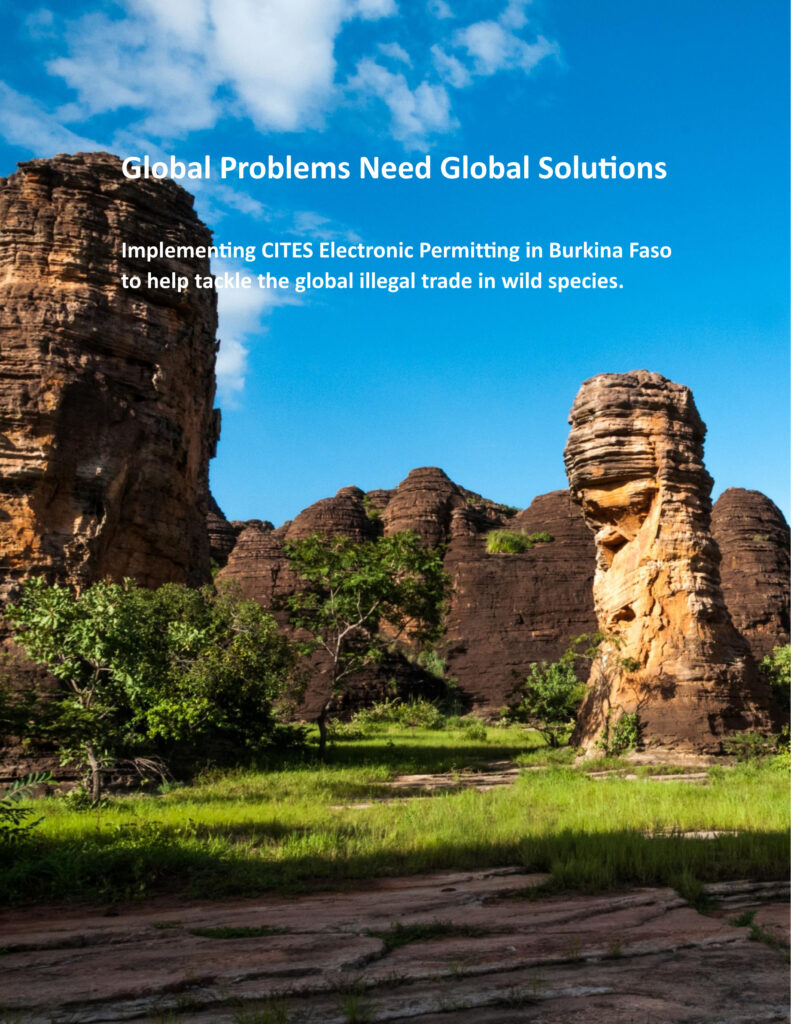
U.S. Ambassador to Namibia
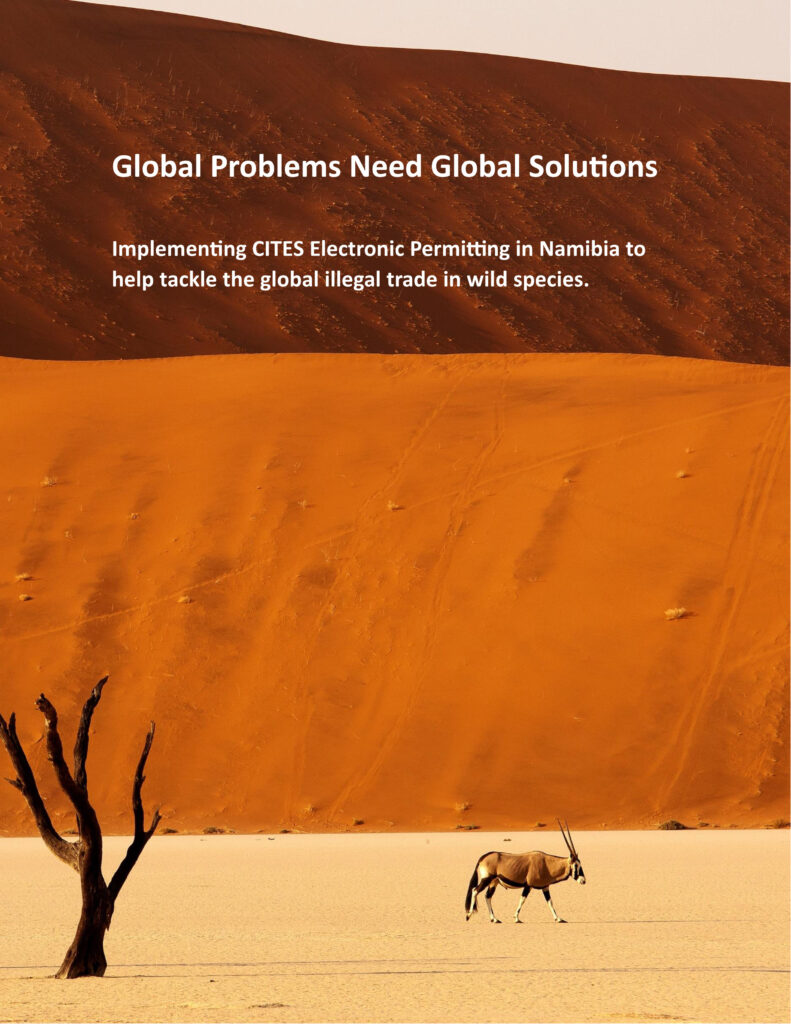
U.S. Ambassador to Cameroon
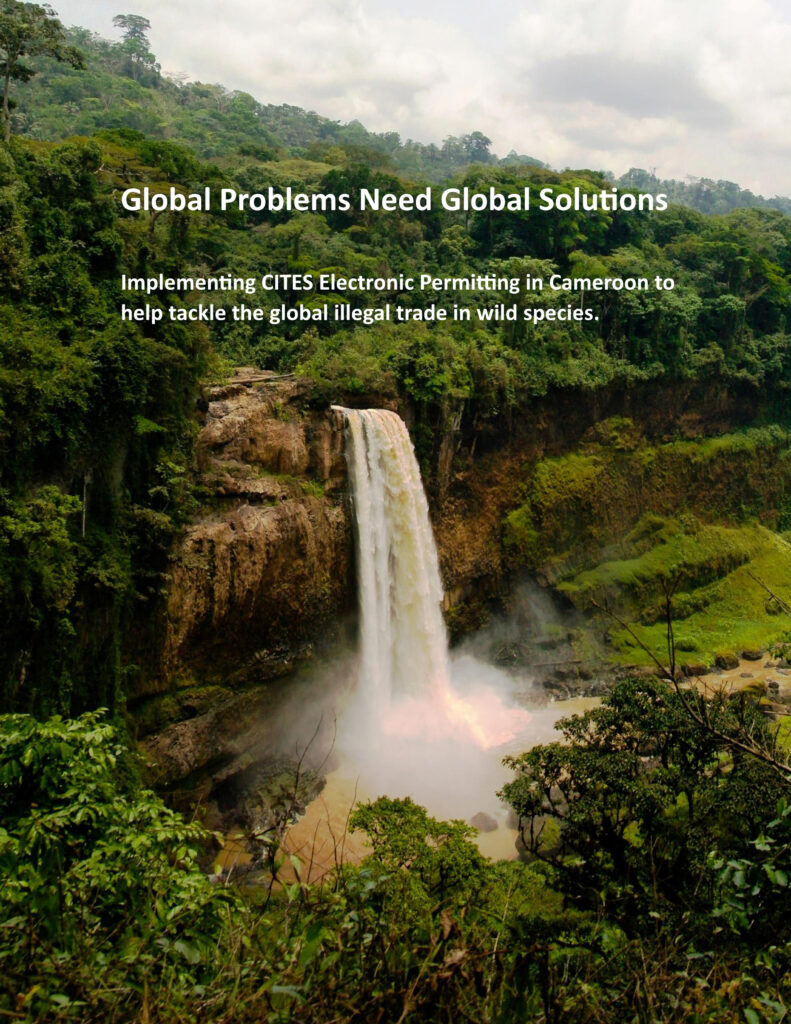
U.S. Ambassador to Kenya
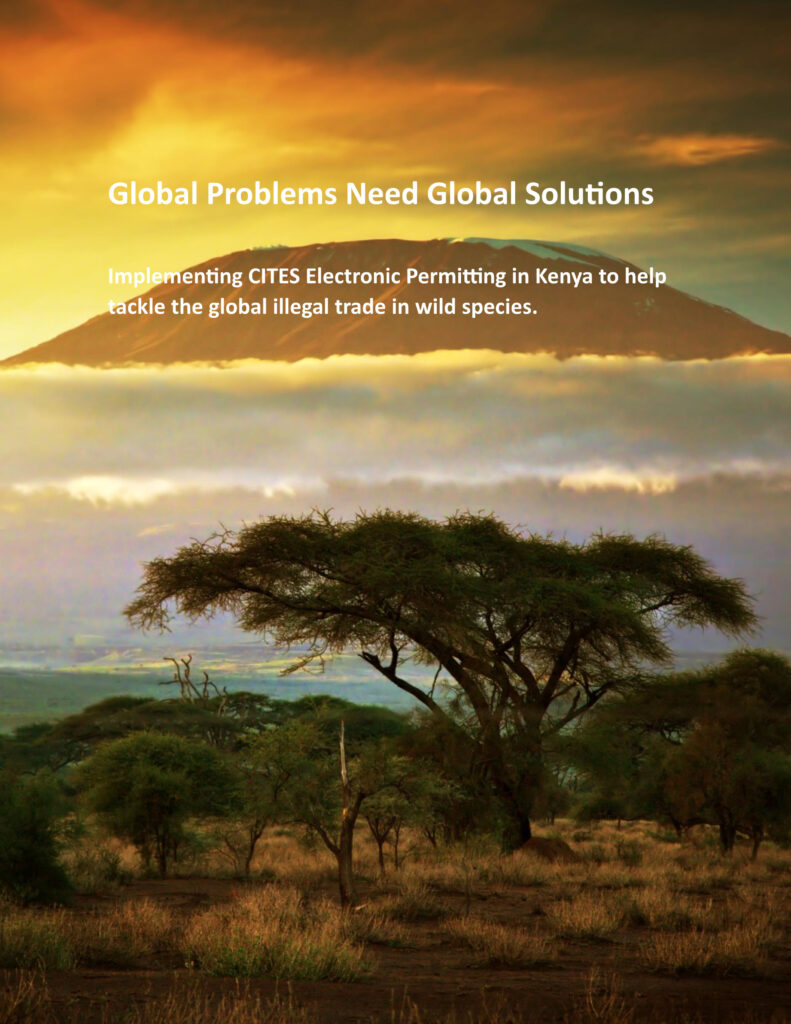
U.S. Ambassador to Equatorial Guinea
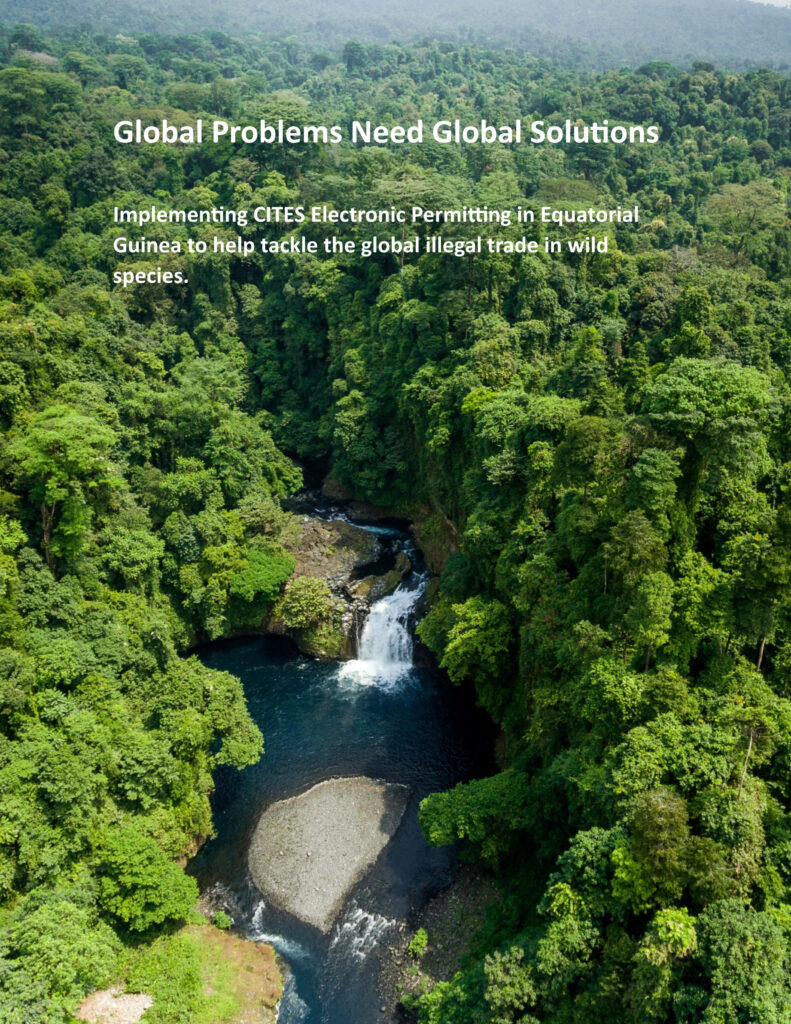
To see the complete list of 32 Ambassadors who have been contacted, follow the link

